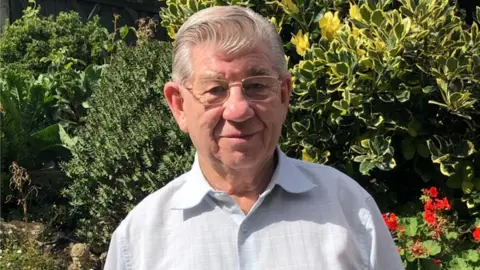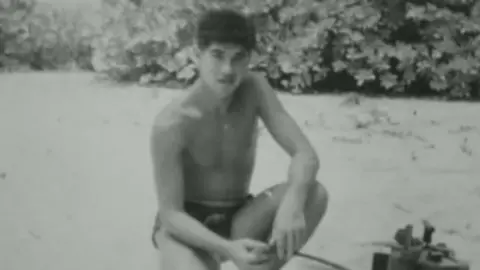West Malling nuclear test veteran's joy at Boris Johnson medal call
 BBC
BBCAn Army veteran who developed tumours after witnessing nuclear tests has spoken of his joy after Boris Johnson called for medals to be awarded.
Terry Quinlan, from West Malling in Kent, was among 22,000 British service personnel to witness tests in Australia and the South Pacific in the 1950s.
In an open letter, the former prime minister said: "It is my firm belief you all deserve such an honour."
Mr Quinlan, now 83, said: "We are so grateful. I am over the moon about it."
The Ministry of Defence (MoD), however, told the BBC there was a "well-established process" in place for the approval of historic military medals, which are awarded by an independent committee.
'Never forgotten'
Mr Quinlan was 18 when he was sent to Christmas Island in 1958 to take part in the UK's nuclear testing programme.
He saw four nuclear explosions and has suffered decades of health problems, including having two large tumours removed from his chest at the age of 23.
He has campaigned for recognition for test veterans, many of whom were affected by the force of the blast or the radiation.

In the letter published on Monday, Mr Johnson, who met a group of veterans and campaigners in June, wrote: "I'm determined that your achievements will never be forgotten."
He said: "I have asked that we look again at the case for medallic recognition because it is my firm belief that you all deserve such an honour."
Mr Quinlan said: "This time we all think we have got somewhere. We are so grateful. I'm over the moon about it, emotional about it, because... I lost so many friends.
"There's only one person in my unit alive besides myself."
His daughter, Anne, said: "My dad, such a proud man to have served his country. He has gone through so much.
"You can't pin a medal on a gravestone, so it's really important they get on with it now."
